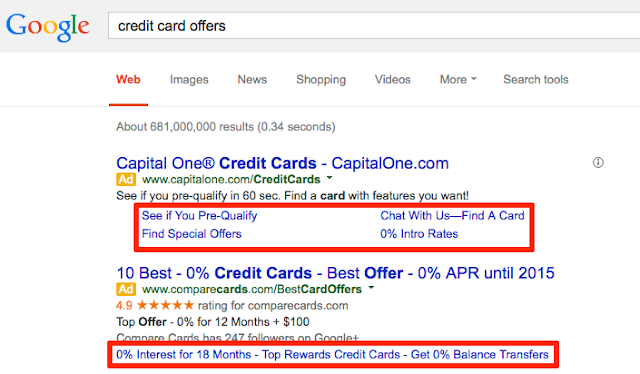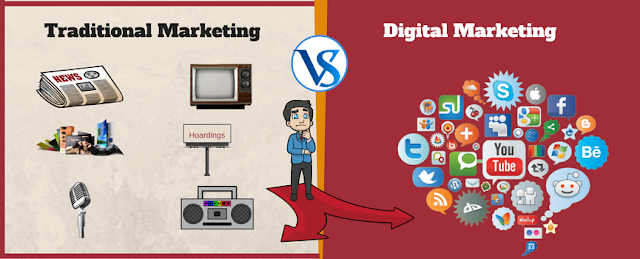Google Ad-words Interview Questions | 2019
Google Ad-word is a very vital marketing tool. The technique is known
to offer high conversion rate to the advertisers thereby growing the brand awareness. If you are applying for the Profile of Ad-words ad visor or expert, here are a few Ad-word interview questions that can help
you bang your dream job.
Q1. State Google Ad-word
Ad-word is an advertising platform by
Google where the keywords go through a bidding process. Search engines and its linked sites then display the advertisements
based on these keywords, when a user searches for a product or service online.
The advertiser has to pay for every click or impression on his advertisement.
Q2. What do you understand by Ad-word keywords?
Ad-word Keywords
are the phrases, which are auctioned by Google and advertisers bid on them. The
ad then appears on a
Search Engine Result Page (SERP) based on the
auctioned keyword when the user is looking for a product or service. Best keywords
can be hunted using Google
Keyword Planner Tool where an
advertiser can also check the performance of a specific keyword.
Q3. What is Google Quality Score?
If we want to make
sure that the ads
displayed are applicable or not, Google
uses metrics. The Google gives a quality score to every keyword, which depends
on certain aspects like: - CTR,
keyword relevance, and the quality of the landing page. A high-quality score
will result in higher ad ranking hence getting more
conversions.
Q4. Explain what is an ad group in Google AdWords?
Ad group
is a term for all the Ad-word ads, keywords, and
landing pages. It contains one or more ads that target a set of keywords. An
advertiser can put relevant keywords in one ad group and can’t dump all
the keywords into a same ad group.
Google rewards those advertisers who use well-structured ad groups in their
campaigns, so we should use ad
groups to shape the ads
by a common theme. You can bid on your ad group’s keyword to activate ads or
you can also set individual prices for each keyword in your ad groups.
Q5. What is the maximum number of Campaigns and ad groups you can create in Ad-word?
Below are the maximum number of campaigns
and ad groups you can create in Ad-word: -
Number of Campaigns (both paused & active): - 10,000
Number of Ad groups per Campaign: - 20,000
Q6. Explain what is Conversion Optimizer in Ad-word?
Conversion
optimizer in Ad-word is a
feature that helps you drive more conversions at lower cost. It uses your Ad-word conversion
tracking data to manage the bidding method at keyword
level so that your ads drive as many conversions as possible at or below your stated cost
per conversion (also called cost per action, CPA). It helps in attaining better
return on investment by separating the
unprofitable clicks from the profitable
clicks for your campaigns.
Q7. What are Google Ad Extensions?
Google
Ad Extensions are extra space provided to advertisers for giving further
information about their business. These comprise spare
snippets of applicable
information about your business like: - location,
phone number, business ratings, sitelinks, offer ads or a link to some specific
website. Ad extensions are free to your ads. It also
improves your site’s visibility and can help you create more
leads which
in turn would create greater ROI.
Q8. What is the formula to find CTR (Click Through Rate)? Does CTR help in improving quality score?
CTR is considered by
dividing the total clicks by total impressions received by your ad and then
multiplying it by 100. We can use CTR to measure the productivity of your
keywords and improve those keywords, which are less result-driven. A higher CTR
is a good indicator that
your ads and keywords are relevant to your users.
CTR= (total clicks/total impressions) *100
Q9. What is the first step
that you should take if your ads get disapproved?
Google
is eligible to
disapprove any ad if it doesn’t lie within its rules. You
have to analyze your ad
and has to find out
the reasons for disapproval. Once you know the reason, you have to work on
editing your ad and fix it instantly.
Sometimes,
you need to change the content of your ad and sometimes you have to modify it
along with your website. There are further reasons
also for
disapproval of ads that marketers should be alert of like
your ad may contain some copyrighted elements or your root domain is different
in your display and destination URL.
Q10. What is the meaning of Impression Share Metric?
A PPC
campaign takes aid of
various metrics to examine the
performance of your campaign. One vital metrics among
them is Impression share metric that marketers have to eye on for inspecting the productivity of
their ads. It is judged by
dividing the impressions you’ve received on the search network with the assessed number
of impressions you were entitled to obtain.
Q11. What is Google Ad-word Double Serving policy?
In order
to make the auction process fair and to avoid misuse in ad
networks, Google has discouraged advertisers from running ads for same or
similar businesses on multiple
accounts activated by same
or similar keywords. This strategy is known as “Double Serving Policy” and Google has
firmly forbidden
multiple ads from the same company from looking on the same
search engine result page. It limits the problem of
showing more
than one ad and users can see ads from different companies in one SERP.
Q12.
Mention in Google Ad-word
those options, which cannot be
changed after generating an account?
Advertisers have to be enormously cautious while creating the Ad-word account of their clients. Once the
account is made, there are few choices, which cannot be edited
or changed. These are:
- Time zone and currency. Time zone and currency are used to govern how you are billed.
Q13. Mention what are the types of Keywords in Ad-word?
There are 4 types of keywords: -
Ø Broad match: – These keywords let you reach the extensive audience possible.
Ø Phrase match: - Your ad will only appear when a user puts your key-phrase in
the exact order you enter them, but there might be other words either
before or after that phrase.
Ø Exact match: - These
are the most specific and obstructive
keyword type.
Ø
Negative keyword: -
It is used when the advertisers do not want to display their
ads in specific keywords.
Q14. Indicate the limit set for the number of Characters for Ad-word ad?
Heading should cover maximum
of 25 characters while the description
line should contain maximum of 35
characters. URL should entail of 1024
characters and it should not have any
image in URL.
Field Max Length
Headline 1: - 30 Characters
Headline 2: - 30
characters
Headline 3: - 30 characters
Description 1: - 90
characters
Description 2: - 90
characters
Path (1) (2): - 15 characters (each)
Q15. Can you explain how does Ad rank influence Cost-Per-Click?
Ad rank
tells how high on the SERP the ad will be
displayed. It is very important to understand the effect of ad
rank on CPC because it plays chief role in knowing the
actual CPC that your competitors pay when someone clicks on their ads. Cost per
click is the definite amount
that we pay to
Google when someone clicks on our ad and not
what we are eager to pay.
Ad ranks help to regulate both
your ad position and CPC of your nearest competitor.
Q16. How does Ad-word bidding work?
Ad-word bidding procedure helps
in defining the
actual position of your ad. This is calculated
by multiplying the maximum bid with the excellence score of the
advertiser. The highest ad rank gets the first position in Google SERP. Genuine CPC
will be determined by the ad rank of the next highest competitor divided by
quality score of your ad. Ad-words bidding deeply punishes
advertisers who bid with low-quality scores.
So,
the questions above contain Google Ad-word
information in a nutshell. If you have both basic and advanced level
information then it will be better organized to face an Interview. For any doubt or want to know anything about this more just mention
it in comment box.





Nice....
ReplyDeletethank you!
ReplyDeleteHello Admin
ReplyDeleteAdvertisement rank tells how high on the SERP the promotion will be shown. It is imperative to comprehend the impact of advertisement rank on CPC in light of the fact that it assumes boss job in knowing the genuine CPC that your rivals pay when somebody taps on their promotions. Cost per click is the unmistakable sum that we pay to Google when somebody taps on our promotion and not what we are anxious to pay. Advertisement positions help to direct both your promotion position and CPC of your closest rival.
Thanks & Regard
Vinita
Very nice😊
ReplyDeletethank you ! Stay tuned for more latest updates
DeleteThank you for sharing this on your blog! It is very helpful for my insight! Please update more posts about this. Would love to see more updates from you.
ReplyDeleteSEO Service
thank you ! Stay tuned for more latest updates
DeleteCan't wait for the next article!
ReplyDeleteVery nice information shared in a very ethical manner. I really enjoyed reading this whole blog.
ReplyDeletedigital marketing course in chennai
Digitechcourses is a leading best company in Lahore, also provides learning skills about seo training in lahore. Its process of the latest technique of online marketing.
ReplyDeleteThanks for Your Great post. Google account tips more information
ReplyDeletehttps://ratnamsoltions.blogspot.com/
ReplyDeleteI am Sharing from Ratnam Solutions Bolg
Delete